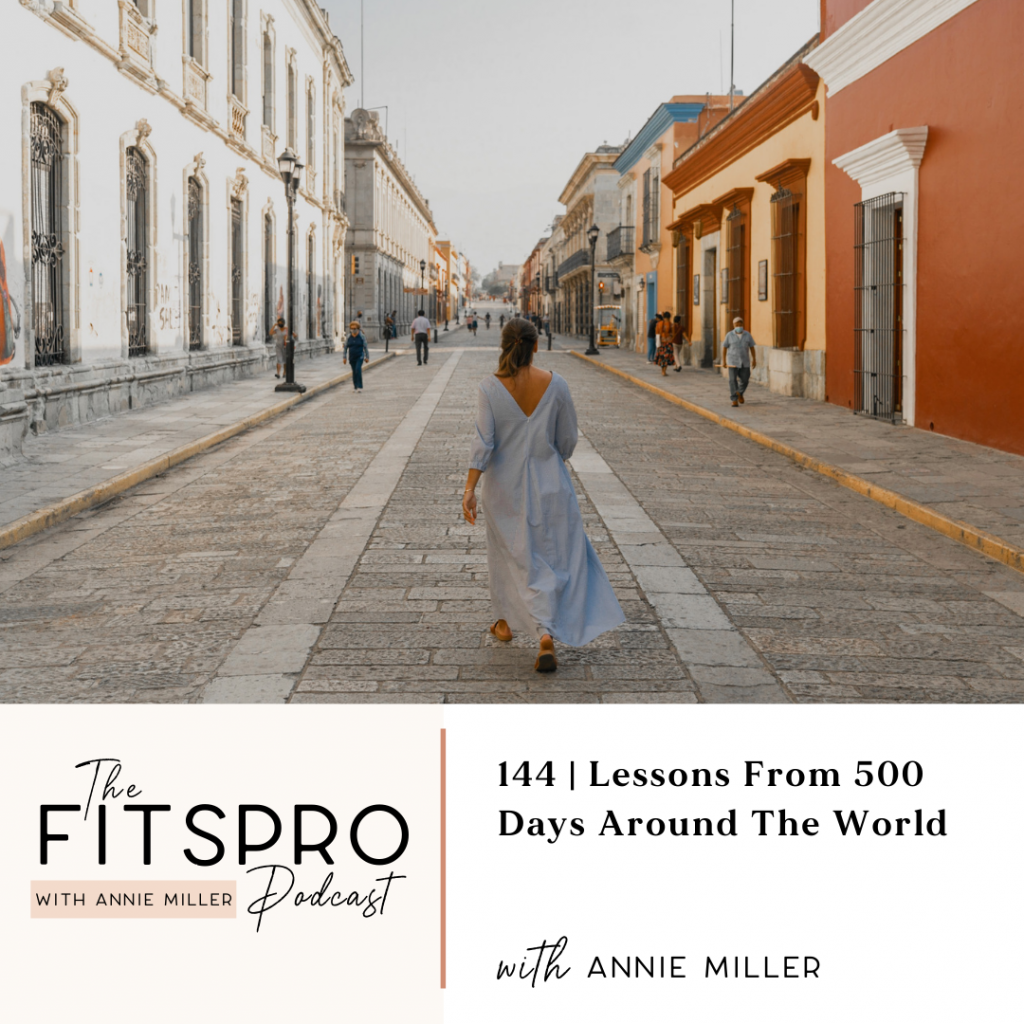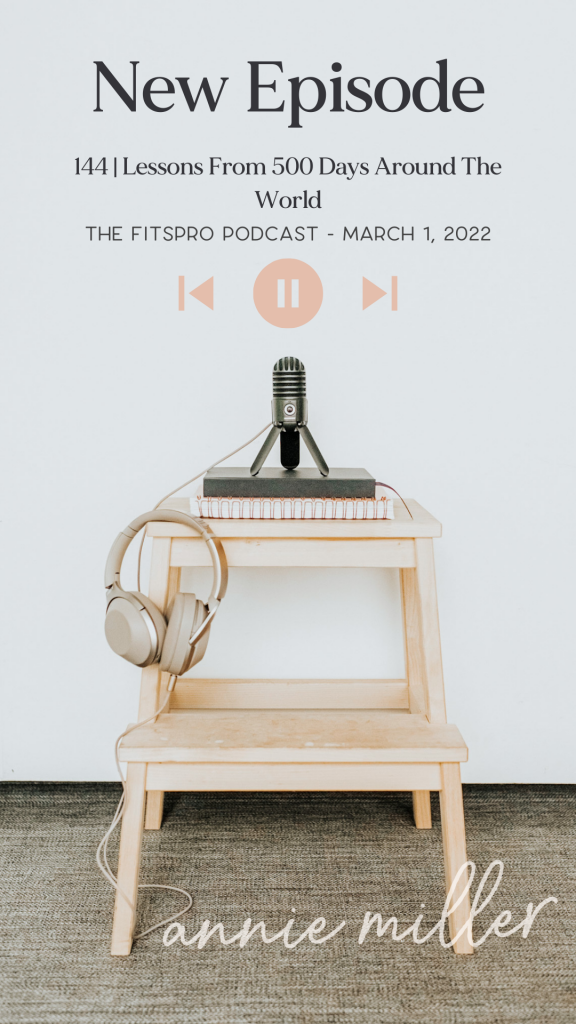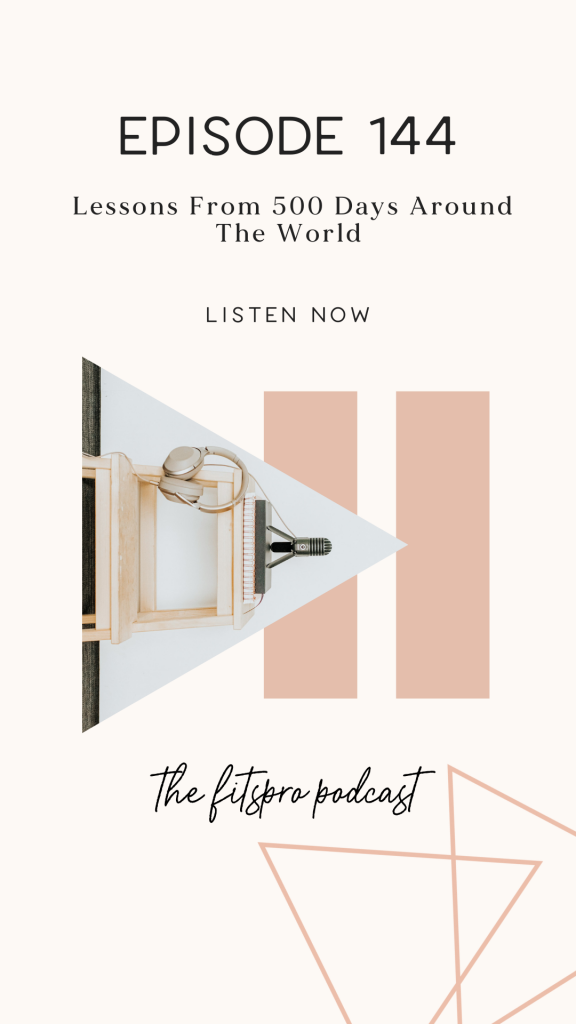the blog
welcome to
looking for something specific? find it here
Podcast: Play in new window | Download (Duration: 26:11 — 36.1MB)
Subscribe: Google Podcasts | RSS

Lessons I have learned through world travel
I have had several conversations as of late where someone has brought up something and I’ve said that “I learned that via world travels.” Or that world travels made something clear to me that this person had mentioned in a conversation. So it made me think why not hop on a podcast and discuss some of the lessons that I have learned through world travel.
I will start this off by saying there are going to be many many generalizations in this episode. And that I am not some guru, I am not an expert on culture, I am just a chick who has gone to a lot of places and had some experiences, and so I’m sharing those, and what I have learned from them. You are free to take from that what you wish. Or, take none of it at all. That is up to you.
Oh number one, strangely enough has to do with money, perception and options.
When Nate and I took off for world travels back in 2018 everyone assumed we were rich. Some people abroad, and many people here in the states. I get that there are questions when you see someone traveling full-time. Do they own a house? Did they sell everything? Do they still have cars? All of these are very valid questions. And we ask those questions as well. The answer is that if someone wants to travel the world they just do what needs to be done in order to make that happen. Some people own a home and rent it out as an Airbnb, some people sell literally everything and buy a plane ticket. Or some people own a home and save up for several months or years and then take a year sabbatical to travel. Some people keep their jobs, some people quit their jobs and some people get jobs overseas. The moral of the story here is, you have options. And it just comes down to entertaining what it might take for you to do the thing, and if that is worth doing the thing or not.
I’ve mentioned this before, but I was making $2500-$4000 a month when we left for world travels. Now my goal was of course to increase that monthly revenue as we traveled and I did. But we also booked some of our accommodations and flights and things of that sort for seven months leading up to our travels. Again that was what we had to do in order to feel secure in our decision to travel. We sold some stuff, a friend moved into our condo and took over rent for us. We sold one of our cars and kept a car that we don’t have payments on.
So there is no one size fits all answer to “how do you travel the world?”
When it comes to money, perception, and options, it’s cheaper to live in a lot of other countries than the United States. You can get jobs there and still be a resident of the US, and have no monthly payments or debt besides maybe your phone. The amount of ways that exist are the ones that you’ve exposed yourself to. That is lesson number one. There are almost always more options to consider.
With that, like I said, sometimes those options are not worth it and you know we are free to make the decision to not pursue the thing because the sacrifices too big. But we made $2,500-$4,000/mo and met people traveling on $5/day. That’s extreme and would not be possible in counties in Europe for example.
Moving on.
Humans want to be understood and want to understand
The question I get often about our world travels is in regards to the language barriers and if we were nervous about those. The answer is yes, we were somewhat nervous about them, but we had traveled to Spain previously, and Puerto Rico. That’s all the traveling we had done before taking off for a year. And between Google translate and playing a bit of charades, it is clear that most humans want to understand you, and they want to be understood. So if there is mutual effort typically it turns out fine. We only had one or two instances in all of our travels where someone was essentially offended that we spoke English and didn’t speak their language. But that was never the norm.
It’s a humbling experience to not be able to communicate with someone. When you know what you want to say but you can’t say it in a way that they are going to understand. Which is also why Google translate is freaking amazing. Because it allows you to expedite that process.
I am not perfect at this by any means and honestly being in a country where you don’t speak the same language as other people makes this easier. Or gives you an excuse not to. But seeking to understand people and being vulnerable enough to say that you want to be understood is a very human experience.
A smile or gesture goes a long way
Especially when language is a barrier, body language becomes a very important. And for me personally, I felt like I became hyper aware of my body language and the body language of others. If I’m being honest, I probably smile way more abroad than I do in the states. Just as to say, “hi I am friendly”. It’s a way of communicating, right?
It translates to every day life though. And clearly that’s something that I could do better at. I find I am far more easily annoyed with people in my own country and day-to-day life than when I am traveling. And I’m sure there’s plenty to unpack there, but again, this episode is not a sermon – just a bunch of random lessons I have learned and apparently am still learning from.
I saw if you’re feeling gracious, or like you have the extra energy, give a smirk to someone today, or hold the door a little longer, or let someone in when you’re driving. Just generally be a good human. Because Lord knows you’re going to be a shitty one on some other day. And maybe somebody will smile at you on that day and turn it around. Or maybe not, but also there is a caveat to the whole smiling and gesture lesson.
Let this be our entrance into the differences in cultures. Which is one of my favorite things about traveling.
Caveat to that last one…
A stare in one country is acceptable or normal, maybe even wanted. While it’s very much so inappropriate in another country. I wasn’t fond of some of the longer gazes from my male counterparts in some countries. But it was normal in their culture from my understanding.
On another note, I honestly don’t go out and about in the states very much. And I live somewhere that is only shorts weather 2 to 3 months of the year for me. So my legs are not exposed to the public eye very often. I remember when we were in warmer countries, I became aware that people were staring at my shins. Which is where I visibly have a little vitiligo. It doesn’t bother me and I never even think about it.
But it just brought to mind that of course people would look at that, or stare a little bit longer because it’s different. They probably wonder why it’s different. If it’s a scar or some kind of condition. And I welcome those questions because it only makes sense to wonder. I don’t think anyone is ever trying to be offensive and if they are they’re just an asshole, I can take that.
That very much so leads to the next and one of my favorite lessons.
IT IS ALL MADE UP
A gesture or word in one language has a completely different meaning in another.
The expectations for your life and how you fit into society. It’s all made up.
Beauty is truly in the eye of the beholder – different cultures have deemed different things as beautiful or attractive.
Pale skin in many Asian countries is praised. I got a face lotion and didn’t realize it was a literal whitening lotion!
In Thailand my masseuse would try to scrub off my tan. She legitimately pointed at my white vitiligo spots and said “beautiful” and painted at my fresh tan and said “no” – I remember trying not to laugh. Cultural differences are real.
Then in Rio you see half naked people everywhere soaking up the sun to get super dark.
Thick bodies, big men, slender men, skinny women, tall, built women, ultra curved women. I would love to know the evolutionary history of why certain cultures value one attribute over another.
My point is, it’s all made up. Beyond physical features, norms, what’s acceptable and what’s not. It’s all made up, culture to culture. In one geographical location ‘x’ is acceptable by society or law, but not in another geographical location.
Please, follow the law. But also, don’t let every made up societal norm dictate your life.
NEXT UP!
Food, kind people, road trips and mountains
While traveling, we would ask people what places they loved and why. Normally it revolved around the experiences that they had there, or the people that they met. In our travels, we started to get a pretty good idea of what was important to us. For instance we are not beach people. And a lot of popular tourist destinations don’t really suit what we like. And that’s OK.
We largely dislike places that have shitty food culture, or people that feel cold or unwelcoming. And those two things can really change the entire vibe of a city or country.
And we freaking love mountains or cities with water. If it has both it’s even better. San Sebastian, Spain remains one of our favorite cities. Yes it’s a beach in Spain, but it has amazing food culture, kind people, and the beach is backed by mountains and wine country. It’s very hard to beat that combination; for us anyway. Rio De Janeiro, Brazil was like that, but not quite as refined, or safe. Just different.
Oh yes, and road trips. We freaking love road trips. There is a freedom of not having to catch a train, or be at the airport. You can just throw everything in the back of the car, you can change your plans as you want, make pitstops, and you get to see so much more of a country when you do a road trip. We’ve now done a road trip through 14 different European countries, Japan, and Patagonia. We had one planned through New Zealand but the ‘rona ruined that. Next on the list is two different European routes and one through Russia. Someday.
The last two had to do specifically with the United States.
The US is an INFANT compared to other countries in the world
We are so young as a country. I specifically remember three conversations. One was with our guide in the Colca Canyon in Peru, Juanito. I looked at the farmers in the base of the canyon still using hand plows and carrying massive loads on their backs. The men were permanently hunched over due to this work. I asked why don’t they innovate or use machines. And he said this is to preserve tradition.
This is only our second month and world travels. And it was very hard for my brain to comprehend that choice. That essentially if they don’t continue this generation by generation, this tradition will die. I still have some reservation about that choice, but the fact is their culture has been doing this for literally thousands and thousands of years. I can’t relate to that. Or really comprehend the connection that those people may have to that particular tradition.
The second conversation was in Croatia, with the host of our Airbnb. We went out to a bar with him and his friend, and he talked about the history of Croatia. And Into the more recent history of Croatia and this other country. He was dating a woman from this other country and because of the history between those two countries his family didn’t want him to marry her. Again with the deep history in these other countries. It just blew my little American mind.
The third conversation was with one of our favorite baristas in Poland. She told us about the history that they learn in school. And she could recite Poland history like I’ve never heard a general high school student rehearse before. It’s not like she studied history, or went to school for history, or was overly interested in history. She just knew it based on what she was taught in school.
The latter two conversations in particular at some point lead to the level of patriotism that people have for their country. And of course we have patriotism in the US. I still think that living in the US is a massive massive blessing and luxury in many ways. But when you have thousands and thousands of years of history behind your country, and you are 100% Peruvian or Polish, I have to imagine that hits a little bit different. It certainly felt like it through these conversations.
I am seeing this through my lens, a German, Swedish, North Eastern European mutt with no real tie to my heritage. So to think of being ONE thing, or as close to ONE cultural ethnicity as you can be opened my eyes. No wonder these people are so patriotic, and feel so deeply for their country. It’s a literal part of their identity.
I am also fully aware that you could be listening to this like OMG DUH ANNIE. But again – JUST SHARING LESSONS AND EXPERIENCES! They’re mine. Take them or leave them 😉
There are many more but the last one is:
Living in and making USD as a business owner is a luxury and blessing
I realize people all over this country have different experiences, but the freedoms that we do have became abundantly clear while spending time in other countries. There are pros and cons to any country, culture, or government. But my personal take after spending over 500 days in other countries, is that I am very grateful to live in America, for a multitude of reasons. And traveling actually increased my awareness of these freedoms and gratitude towards the USA (even with her issues).
Oh there are so many more lessons! I wish we could just sit around a fire with some coffee and tell world travel stories. But this shall do for now.
Book yourself a freaking ticket, or get in your car and go rack up some new experiences.
It’s a rando episode but share it if you found value.
Leave the FitsPRO Podcast a review
If you find value here, on The FitsPRO Podcast, then pretty please head over to iTunes, subscribe, rate and review the show. It means the world to me when you spread my message to more humans.
Want more podcasts? Click here to skim the archives.
P.S. Save this value packed episode for later over on Pinterest!
ALL THE LINKS YOU NEED:
Free On Demand Workshop: 3 Steps To Build a Profitable Online Health and Fitness Business
Supplements: Legion Athletics Code ANNIE for 20% off
Skincare: Fré Skincare Code FDBA for at least 15% off
Bags: Vooray Code ANNIE for 20% off
I'm an adventurous introvert from Vancouver, Washington who lives on sleep + "me time." I'm a lover of lifting weights, dinosaurs, real talk and traveling with my husband. I am here to help you move better, lift more, bust the myths of the fitness industry, and inspire you to love the process.
Hey you,
The name's Annie & you're reading my thoughts. Let's get acquainted.
the whole story >
looking for something specific? find it here
THE LINKS BELOW ARE AFFILIATE LINKS
SKIN CARE
Nutrition
brands I love
working against gravity
Fre skin care
favorites
blue light blockers
klassy network
code: fdba saves you 15% off
online TRAINERS
save $50
code: ANNIE saves you 20% off
You love my style, trust my reviews, and want more Annie Miller Concepts vibes in your life? Shop my favorite brands. You get awesome products and yours truly gets a little kick-back.


